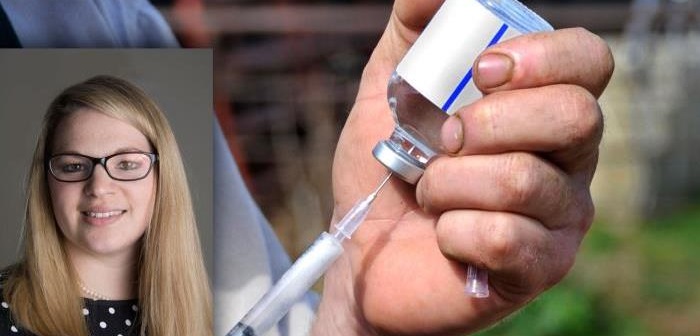The UK is “light years ahead” of some countries in dealing with antibiotic use and resistance says the NFU’s animal health and welfare adviser, Rebecca Veale, although she adds that we still shouldn’t feel complacent about the issue.
Writing on the NFU website, as a follow-on to last week’s fourth biannual Responsible Use of Antibiotics in Animals conference, she points out that antibiotic resistance (AMR) isn’t exactly a “new thing”.
“In fact Fleming reported resistance within a short time of discovering penicillin,” she writes. “What is apparent, however, is that while we’re all on the same page in terms of recognising the issue, there is a lack of global standardised approach to tracking and tackling AMR, with everyone doing something different. That is no bad thing.
“Every country faces different challenges, they can be related to a myriad of things such as policy, infrastructure or culture, and as such we all need to learn from one another and channel our own path to get to responsible use.”
Ms Veale (pictured above) then lists the following country examples regarding AMR action:
- America – just about to make big changes in antibiotic use, involving the vet more and the phasing out all medically important antibiotics for growth and production gains in feed.
- Spain – has developed a National Action Plan and is implementing a voluntary plan to reduce colistin use in the pig sector, which is a big challenge considering different parts of the country are governed separately.
- Kenya – also developing a National Action Plan for antibiotic reduction, a great step for a country which has a lot of undocumented antibiotic use.
- UK – things here are going to change with the introduction of targets to reduce antibiotic usage within agriculture.
“The word responsible wasn’t used a lot over the three days (of the conference), reduction and stewardship were,” she adds.
“I think as a country we do need to make some reductions, and the government targets have prompted action. But actually we are in a place where we talk responsible use regularly. The additional fact that RUMA has been integrated into industry for so long now means that we are light years ahead of some countries.
“But we shouldn’t feel complacent.”




